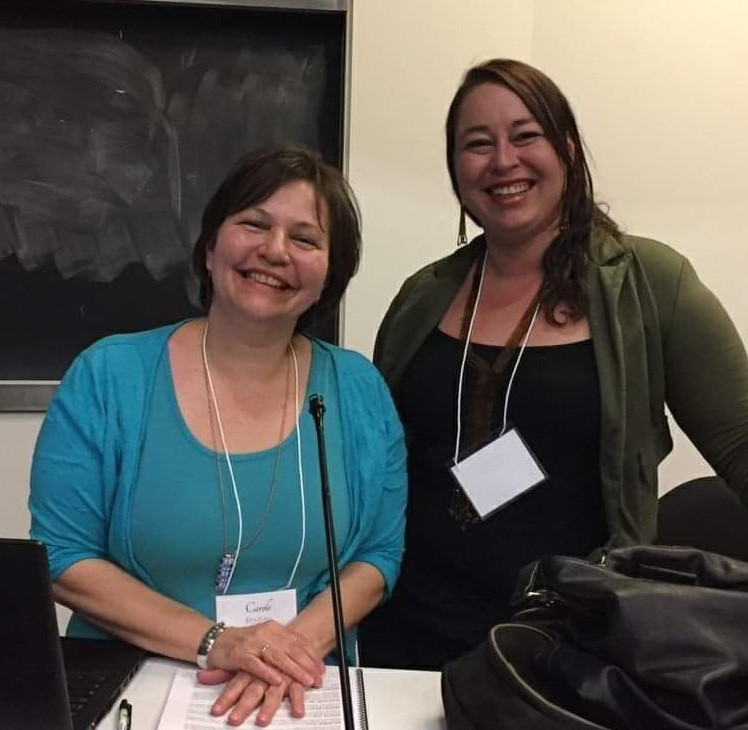Carole Brazeau has spent a lifetime in the service of Indigenous peoples in Quebec. She is continuing that service as program manager of McGill’s Indigenous Initiatives, the newest hire for the program administered by the Office of the Provost and Vice-Principal (Academic) to “embed Indigeneity in the life and activities of the University.”
Several of the 52 Calls to Action contained in the 2017 final report of the Provost’s Task Force on Indigenous Studies and Indigenous Education pledge to develop more Indigenous academic programs and introduce more Indigenous content in the curriculum.
Those are two of the principal tasks on her agenda, said Brazeau, who began work on March 15.
“I’m also looking at doing the Indigenous programming for the McGill Bicentennial as well as for the Indigenous Awareness Weeks.”

Bicentennial Indigenous programs have been extended to September 2022. Activities under consideration include educational videos about McGill’s long history, an overview of the University’s history of interaction with Indigenous peoples, highlighting the Indigenous community bonds McGill has made and is making, a celebration of the growing numbers of Indigenous scholars and underscoring how Indigenous research methodologies and ethics are being integrated by the University.
The 2020 Indigenous Awareness Weeks (IAW) celebrations were sharply curtailed due to COVID-19, and this year’s events in September will probably be a hybrid of in-person and virtual events, she added.
The Weeks promote Indigenous voices on campus, providing greater knowledge and understanding of Indigenous peoples in Canada. They aim to raise awareness and initiate an exchange of ideas on First Nations, Inuit and Métis topics within the McGill community.
When the IAW were last held unfettered, in 2019, they included 15 free events at the downtown and Mac campuses, including a panel discussion on reclaiming traditional birthing practices, a celebration of 2Spirit authors, a presentation on Indigenous architecture and a panel on harm reduction.
“We’re looking for an Indigenous education advisor [and other posts] at the moment,” said Brazeau, “but right now, I’m filling in and doing that – and a bit of everything until all the positions get filled.” McGill is in the process of hiring Indigenous staff to honour one of the Task Force’s aims, “to establish and support active, innovative and equitable recruitment strategies that respect and support Indigenous peoples.”
12 years in Kahnawà:ke
An Algonquin Anishinabe from Kitigan Zibi, adjacent to Maniwaki, Brazeau has worked in the Montreal area for three decades and has advocated for funding equity for Indigenous women’s shelters for many years.
“Only 41 are Indigenous Services Canada (ISC) funded, but we have about 642 communities” – a much lower rate of funding than provincially-funded shelters.
That rankled Brazeau, whose mother, Madeleine, is a survivor of the harsh Canadian residential school system that forced Indigenous children away from their families, homes and cultures.
She worked at the Native Friendship Centre on Côte-des-Neiges starting in 1991, and also was a frontline worker at the Native Women’s Shelter of Montreal for 17 years, until 2008. For the last 12 years, Brazeau was in Kahnawà:ke, where her last position was a Victims of Crime Research Coordinator for the Mohawk Council of Kahnawà:ke (MCK).
For seven of those 12 years, she was Project Coordinator with the National Aboriginal Circle Against Family Violence, working with Indigenous women in Quebec.
Just as she was negotiating her second contract as a Research Coordinator for MCK she was forced into a “pandemic sabbatical.”
Not much of a rest, though.
“I stayed with my Mom in Kitigan Zibi for two months because she needed open-heart surgery – a double by-pass. And then there was the [Joyce Echaquan] issue, which my daughter was coping with just as my Mom was going into the hospital the next day.”
Brazeau’s daughter Jennifer is Executive Director of the Native Friendship Centre in Joliette, where Echaquan, an Atikamekw mother of seven, died at a nearby hospital after she captured on video staff yelling racist epithets at her.
The importance of physical representation
When Carole Brazeau started her new position, she hit the ground running – although she had to install an Internet connection in her home for the first time in her life.
“I’m very proud to be at McGill,” she said. “I graduated from Concordia in Women’s Studies, and went to Grad school at Carleton in Ottawa, where I did my practicum on fishing rights and lobster trapping in the Listuguj community.”
“Right now,” said Brazeau, “I’m in the process of facilitating Indigenous engagements for projects like the New Vic [proposed multidisciplinary research centre on the former site of the Royal Victoria Hospital], Fiat Lux [large-scale library renovation project] and the quadrangle landscaping with the Campus Planning and Development Office.”
She is also promoting the UN International Decade of Indigenous Languages that begins in 2022, and is coordinating Indigenous Awareness Weeks to coincide with the Pow Wow, a free, public annual event celebrating First Nations, Inuit and Métis cultures, this fall – although details are still pending due to the pandemic.
Her duties include developing a communications plan, strengthening relations with Indigenous media outlets, “liaising closely” with Indigenous faculty and staff “and managing a lot of internal committee meetings to ensure appropriate stakeholder engagement and consultations.”
“I want the ground to be fertile for more Indigenous students,” Brazeau added. “The Calls to Action target is to double the Indigenous student population to 1,000 in 2022.”
“McGill has put in place resources for their success. It’s important to be physically present, to have physical representation. In back of us, they’re all young, and I hope it will be a welcoming place, so that their gifts and abilities flourish fully. Then they’ll be able to do what they can for their families, themselves, their communities, their Nations, and society at large.”

I wish to Congratulate Carole Brazeau on all her accomplishments working hard for the betterment of all our Indigenous People’s.
Congratulations on your appointment as a voice and advocate for the indigenous community.